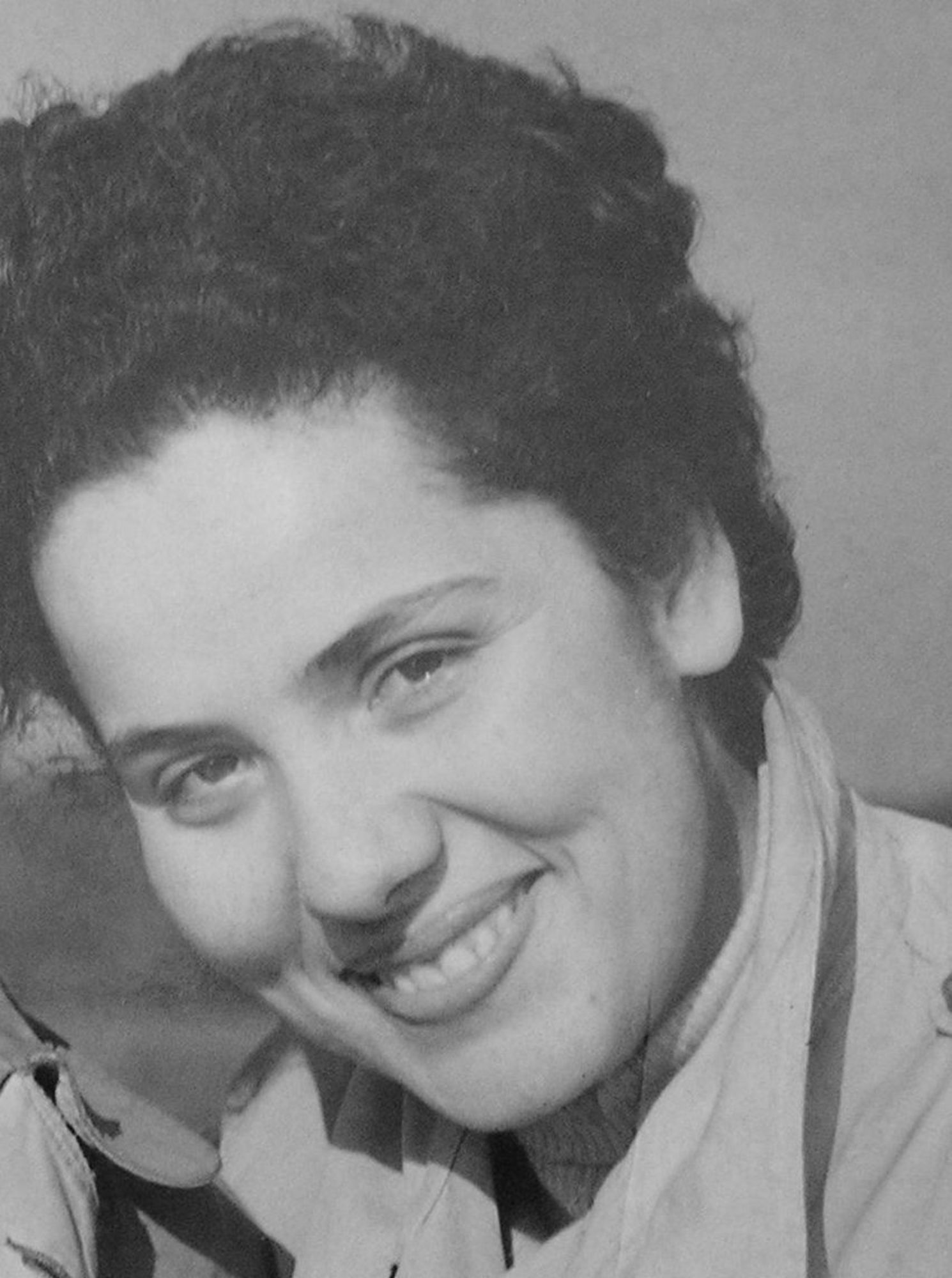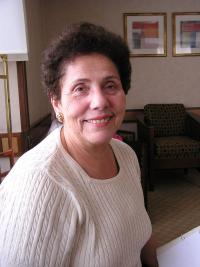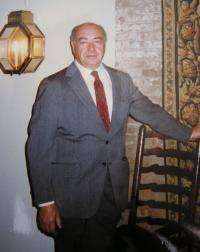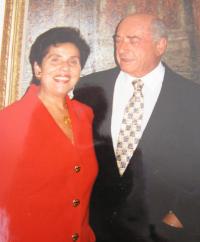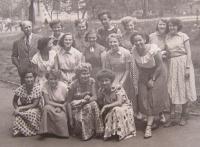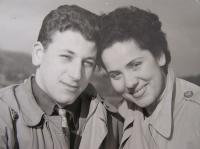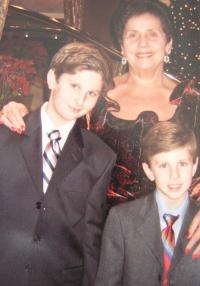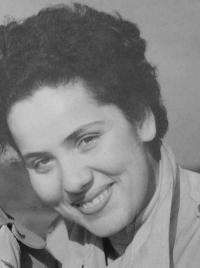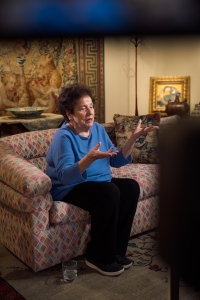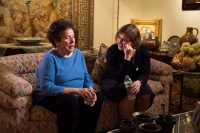"So, you applied for eviction already in sixty-seven, when grandma died?
We did it... we did it before and grandma was still okay. They said that… mom said that we will all go to America, okay. But what happened... We applied, but it took a while... Getting a visa was impossible. Hey... in the sixties it was... four fifths, something like that. And it would be terrible, we just had to wait, yeah. That uncle, uncle was there to help us and so on, but then mom got the cancer back. She even had a boyfriend, and that boyfriend went to America with his whole family, and that he would be waiting there... that we would all be there. Hold, she then wrote to him that she had to go to the hospital again. She had the metastases and was there for sixteen months... under that, Under Petřín. And then finally, finally… finally she died. Before that, my grandmother died... she was already in some old house, we had to put her there. She also has a tomb there, near Vinohrady jó. I don't know if you knew the name František Goldsteiner. She didn't know him... he was famous on TV, in the theater, in the movies. She lives next to him... And my life, I was divorced, but my grandmother, my mother-in-law took care of her... she always took her for the weekend, so it was okay. But every day I went to the bank early in the morning. After work, I then went on foot, under that Petřín, right. Then home, well... I didn't have an easy life. Well, everyone seemed to believe that we would go and so on... and then we decided that I wouldn't go, because my mother is sick and I don't want her to die here... what would I do, yes. So she was still in the hospital, everything was okay, but suddenly... It was the twenty-first that it happened. Suddenly a friend calls me at four in the morning and says: "The Russians are here!" I said please, you are drunk, go home, he was a manager of a restaurant. No, no... The Russians are here... those Russians! Really? And he says, yeah. So I started calling everyone at four in the morning because it was terrible. What happens now? We didn't know what would happen. I lived in Bubeneč and I walked to Příkopy to the bank. Everyone has been there. No one knew what would happen when they closed the borders! So... those Russians. And I'm you, I'm... well, my mom died on the sixth of August and the Russians came on the twenty-first of August, yeah. So I didn't know what I was going to do in my life. I still remember lying in bed and telling you that now I only have Simona, what will happen to us, where will we go. The first husband did not want to go back, and wanted to go with me to America afterwards. And I wonder what I'm going to do. And so it happened that the Russians came on the twenty-first, and I thought to myself, "I'm not going to live here, I'm going to America!"
